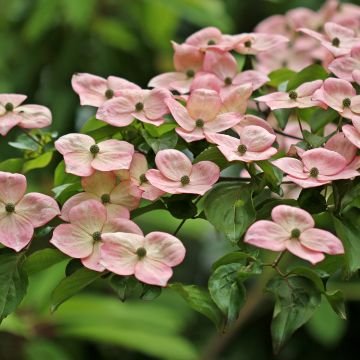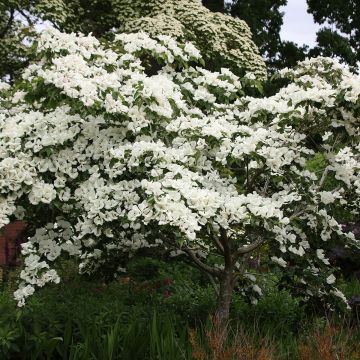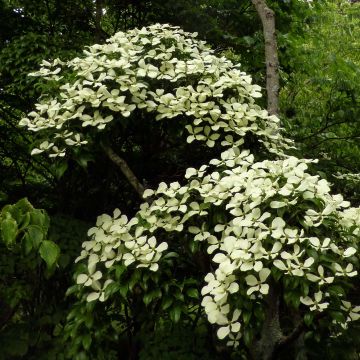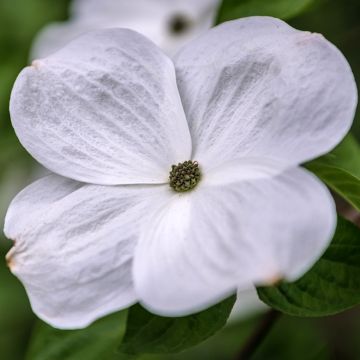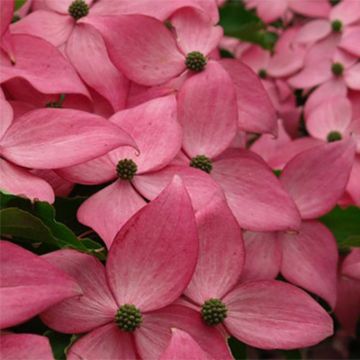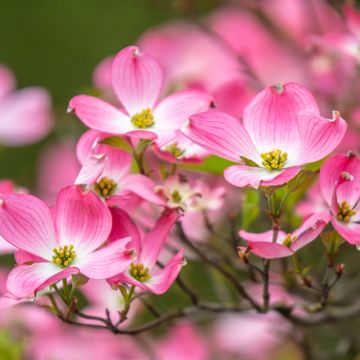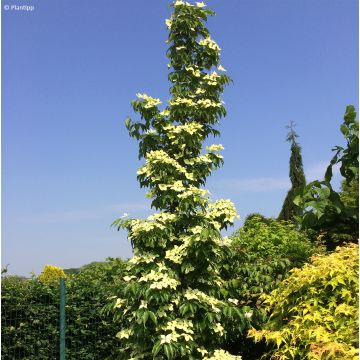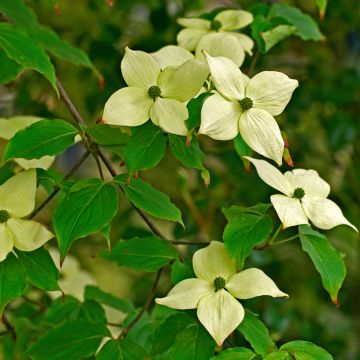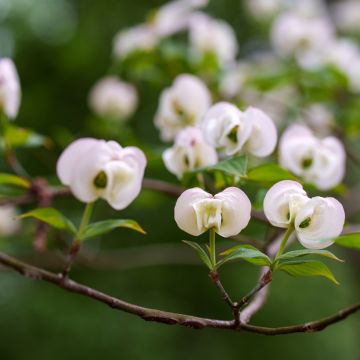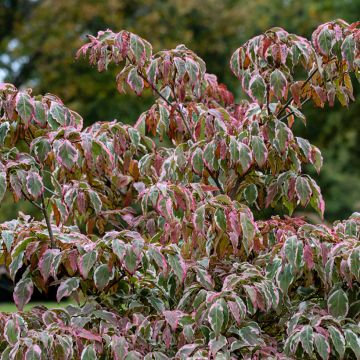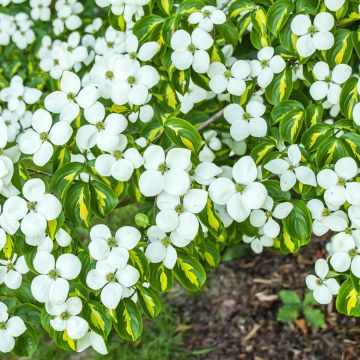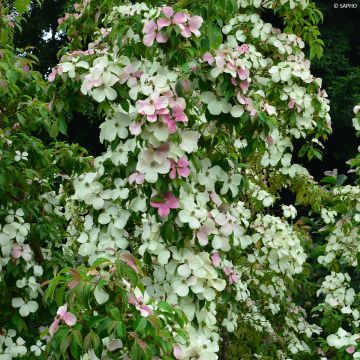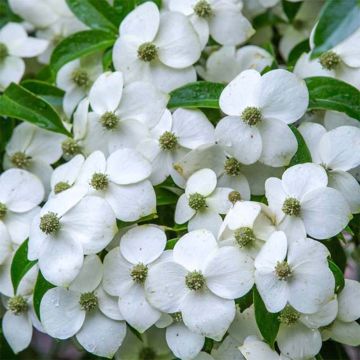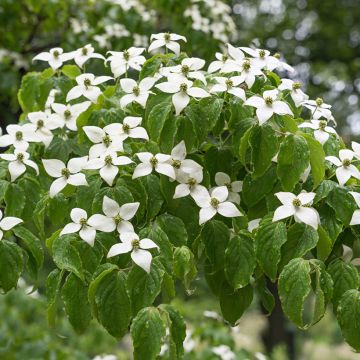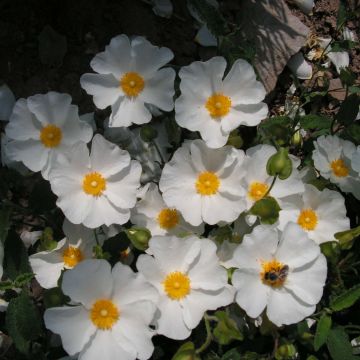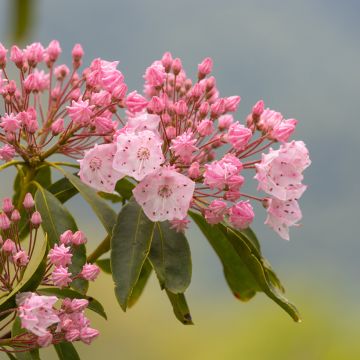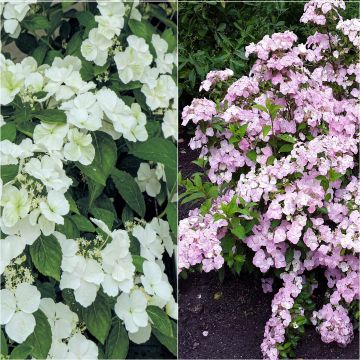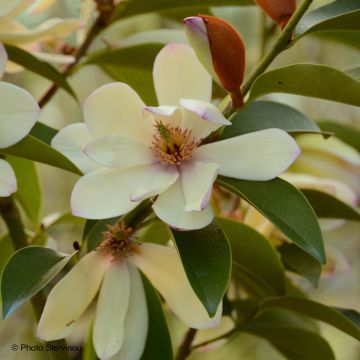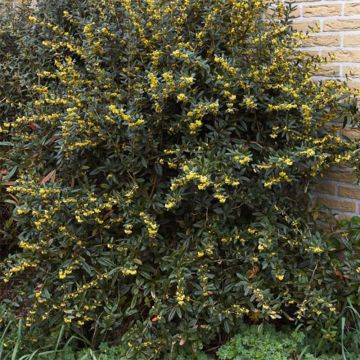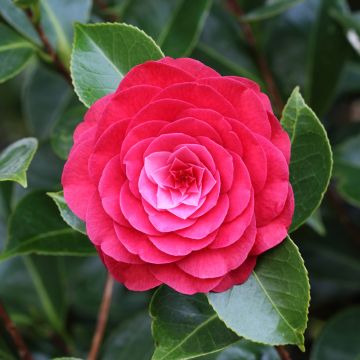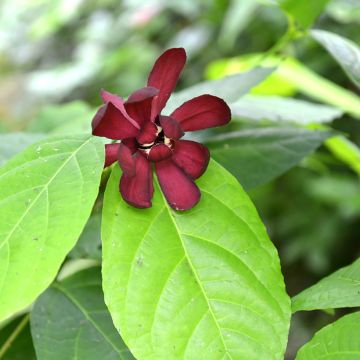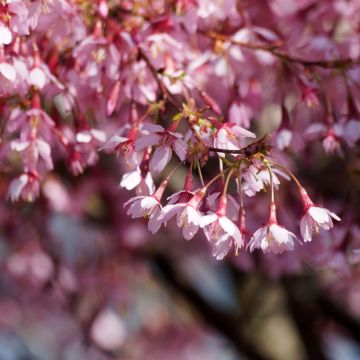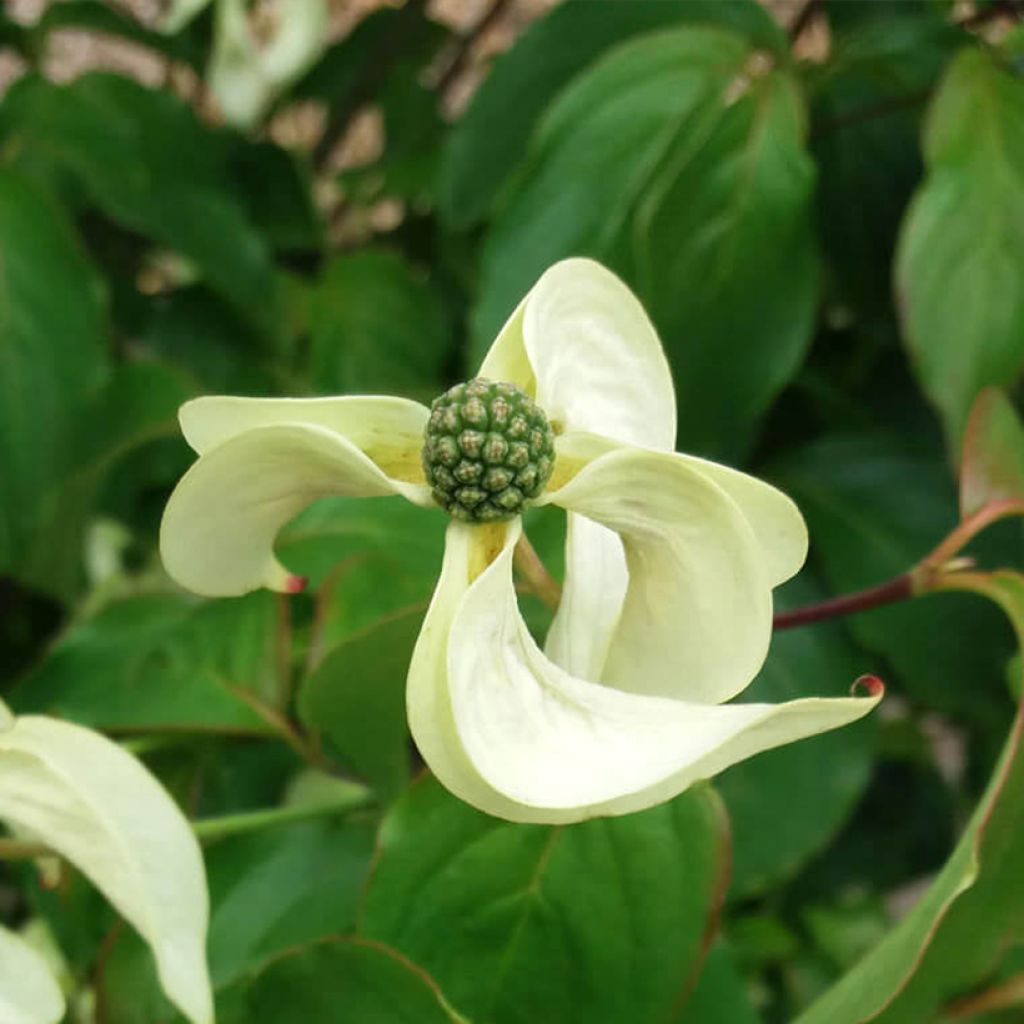

Cornus kousa Couronne - Flowering Dogwood
Cornus kousa Couronne - Flowering Dogwood
Cornus kousa Couronne
Kousa Dogwood, Japanese Dogwood, Chinese Dogwood
The beautiful young plant arrived in perfect condition, very well packaged and we planted it the next day. We hope everything will go well this winter. Good mulching to protect it and fingers crossed! Thank you.
Isabelle , 26/11/2023
Special offer!
Receive a €20 voucher for any order over €90 (excluding delivery costs, credit notes, and plastic-free options)!
1- Add your favorite plants to your cart.
2- Once you have reached €90, confirm your order (you can even choose the delivery date!).
3- As soon as your order is shipped, you will receive an email containing your voucher code, valid for 3 months (90 days).
Your voucher is unique and can only be used once, for any order with a minimum value of €20, excluding delivery costs.
Can be combined with other current offers, non-divisible and non-refundable.
Why not try an alternative variety in stock?
View all →This plant carries a 24 months recovery warranty
More information
We guarantee the quality of our plants for a full growing cycle, and will replace at our expense any plant that fails to recover under normal climatic and planting conditions.
Would this plant suit my garden?
Set up your Plantfit profile →
Description
The Cornus kousa 'Couronne' is a recent horticultural selection with multiple attractions. This Japanese Dogwood forms a medium-sized bush in the shape of a pagoda, taller than it is wide, whereas most other varieties tend to spread in width. Its flowering is also quite distinctive, with beautiful white curved bracts resembling an immaculate royal crown. Its beautiful foliage takes on warm autumn colours that create stunning scenes in the garden. Very hardy and less difficult to grow than its cousin, Cornus florida, this beautiful bush undoubtedly deserves to be planted more, especially since its dimensions are suitable even for smaller spaces.
The Dogwood belongs to the small family of Cornaceae, which, after several reclassifications, now includes only the genera Cornus and Alangium. In nature, Cornus kousa is a tree with small growth, or a large bush, native to Japan, China, and Korea. Its architectural silhouette, supported by staggered and horizontal branches, gives it a Japanese appearance. The botanical species has given rise to several horticultural varieties, the result of breeders' work.
'Couronne' is a recent creation with original characteristics. With relatively slow growth, the bush will reach 3m (10ft) in height, or slightly more, but rarely exceed 1m (3ft) in width. These unusual proportions and its pagoda-like habit give it a very interesting graphical aspect, well suited to contemporary, Japanese, or exotic style gardens. Its flowering, which appears in May and extends into June, is also very unique in its unprecedented form. The inflorescences are typically composed of a central cluster of small flowers, clustered together to form a sort of small greenish cone, vaguely resembling a blackberry. Four white bracts are inserted into it, each about 5 or 6cm (2in) long, which are mistakenly admired as flowers (they are transformed leaves). The novelty here lies in the downward curvature of the bracts, which appear to form the framework of a crown surmounted by the cluster, the latter reigning at the top like a diamond. Very floriferous, the bush offers a surprising spectacle that attracts all eyes in spring.
The flowers are followed by fruits measuring 2.5cm (1in) in diameter, red or orange in colour. The higher the summer temperatures, the more generous the fruiting. Conversely, if the summer is cold and humid, the flowering will be affected the following year... The foliage of this cultivar is quite similar to other varieties, with elliptical-shaped leaves and pointed tips. The veins are clearly visible and the surface of the leaf blade, a fairly dark green, is slightly shiny. In autumn, with the onset of cold weather, the leaves turn red, orange, purple and other warm ornamental shades.
The Cornus kousa 'Couronne' thrives in continental climates, with marked summers and winters, but performs well in milder areas too. In hot regions, it should be placed in a sheltered spot away from scorching sun, and everywhere, protected from strong winds. This Japanese Dogwood is particularly interesting for small gardens due to its narrow habit. It will be easy to find a place for it in a varied plant bed, alongside other ornamental plants with similar needs. The Chinese Azaleas will allow you to create sumptuous colour contrasts, especially the Azalea mollis Koster's Brilliant Red with its spring bouquets of orange-red trumpets. To extend the flowering season of your plant bed into early spring, treat yourself to the incredible Magnolia x soulangeana Megalonia, with gigantic rose-purple flowers up to 30cm (12in) in diameter in March-April. And for summer blooms, nothing beats the Hydrangeas available in an incredible range of colours and sizes. The varieties of Camellia sasanqua will offer you their romantic blooms late in the season and even during winter for some.
Report an error about the product description
Plant habit
Flowering
Foliage
Botanical data
Cornus
kousa
Couronne
Cornaceae
Kousa Dogwood, Japanese Dogwood, Chinese Dogwood
Cultivar or hybrid
Other Flowering Dogwood
View all →Planting and care
Originally from Japan, Korea and China, Cornus kousa bushes thrive in continental climates and temperate zones. The long, hot summers promote fruit ripening. This bush is quite hardy and can withstand frost of at least -15°C (5°F). It tolerates sunny exposures in areas with moderately hot summers. In hot regions, it should be planted in a location protected from scorching sun.
It appreciates deep, fertile, well-drained soils that are slightly acidic or neutral (although it is not a plant for heathland, which is too poor and dries out quickly). It greatly appreciates the thick humus of leafy undergrowth. It tolerates clay soils as long as it is protected from excessive moisture, especially in winter. Plant it in a deep hole lined with clay pebbles, coarse sand or gravel to ensure good drainage if necessary, in a very compact soil. Any good, balanced and loose garden soil suits it. At planting, provide it with compost and leaf mould. Mulching with pine bark will help maintain freshness in summer and promote soil acidity.
Pruning is not obligatory, but can be done at the end of winter to remove diseased or dead wood and crossing branches in order to maintain an attractive pagoda-like habit. During the first two years after planting, regular watering is necessary in summer, afterwards it can manage on its own.
Planting period
Intended location
Care
-
, onOrder confirmed
Reply from on Promesse de fleurs
Similar products
Haven't found what you were looking for?
Hardiness is the lowest winter temperature a plant can endure without suffering serious damage or even dying. However, hardiness is affected by location (a sheltered area, such as a patio), protection (winter cover) and soil type (hardiness is improved by well-drained soil).

Photo Sharing Terms & Conditions
In order to encourage gardeners to interact and share their experiences, Promesse de fleurs offers various media enabling content to be uploaded onto its Site - in particular via the ‘Photo sharing’ module.
The User agrees to refrain from:
- Posting any content that is illegal, prejudicial, insulting, racist, inciteful to hatred, revisionist, contrary to public decency, that infringes on privacy or on the privacy rights of third parties, in particular the publicity rights of persons and goods, intellectual property rights, or the right to privacy.
- Submitting content on behalf of a third party;
- Impersonate the identity of a third party and/or publish any personal information about a third party;
In general, the User undertakes to refrain from any unethical behaviour.
All Content (in particular text, comments, files, images, photos, videos, creative works, etc.), which may be subject to property or intellectual property rights, image or other private rights, shall remain the property of the User, subject to the limited rights granted by the terms of the licence granted by Promesse de fleurs as stated below. Users are at liberty to publish or not to publish such Content on the Site, notably via the ‘Photo Sharing’ facility, and accept that this Content shall be made public and freely accessible, notably on the Internet.
Users further acknowledge, undertake to have ,and guarantee that they hold all necessary rights and permissions to publish such material on the Site, in particular with regard to the legislation in force pertaining to any privacy, property, intellectual property, image, or contractual rights, or rights of any other nature. By publishing such Content on the Site, Users acknowledge accepting full liability as publishers of the Content within the meaning of the law, and grant Promesse de fleurs, free of charge, an inclusive, worldwide licence for the said Content for the entire duration of its publication, including all reproduction, representation, up/downloading, displaying, performing, transmission, and storage rights.
Users also grant permission for their name to be linked to the Content and accept that this link may not always be made available.
By engaging in posting material, Users consent to their Content becoming automatically accessible on the Internet, in particular on other sites and/or blogs and/or web pages of the Promesse de fleurs site, including in particular social pages and the Promesse de fleurs catalogue.
Users may secure the removal of entrusted content free of charge by issuing a simple request via our contact form.
The flowering period indicated on our website applies to countries and regions located in USDA zone 8 (France, the United Kingdom, Ireland, the Netherlands, etc.)
It will vary according to where you live:
- In zones 9 to 10 (Italy, Spain, Greece, etc.), flowering will occur about 2 to 4 weeks earlier.
- In zones 6 to 7 (Germany, Poland, Slovenia, and lower mountainous regions), flowering will be delayed by 2 to 3 weeks.
- In zone 5 (Central Europe, Scandinavia), blooming will be delayed by 3 to 5 weeks.
In temperate climates, pruning of spring-flowering shrubs (forsythia, spireas, etc.) should be done just after flowering.
Pruning of summer-flowering shrubs (Indian Lilac, Perovskia, etc.) can be done in winter or spring.
In cold regions as well as with frost-sensitive plants, avoid pruning too early when severe frosts may still occur.
The planting period indicated on our website applies to countries and regions located in USDA zone 8 (France, United Kingdom, Ireland, Netherlands).
It will vary according to where you live:
- In Mediterranean zones (Marseille, Madrid, Milan, etc.), autumn and winter are the best planting periods.
- In continental zones (Strasbourg, Munich, Vienna, etc.), delay planting by 2 to 3 weeks in spring and bring it forward by 2 to 4 weeks in autumn.
- In mountainous regions (the Alps, Pyrenees, Carpathians, etc.), it is best to plant in late spring (May-June) or late summer (August-September).
The harvesting period indicated on our website applies to countries and regions in USDA zone 8 (France, England, Ireland, the Netherlands).
In colder areas (Scandinavia, Poland, Austria...) fruit and vegetable harvests are likely to be delayed by 3-4 weeks.
In warmer areas (Italy, Spain, Greece, etc.), harvesting will probably take place earlier, depending on weather conditions.
The sowing periods indicated on our website apply to countries and regions within USDA Zone 8 (France, UK, Ireland, Netherlands).
In colder areas (Scandinavia, Poland, Austria...), delay any outdoor sowing by 3-4 weeks, or sow under glass.
In warmer climes (Italy, Spain, Greece, etc.), bring outdoor sowing forward by a few weeks.






























